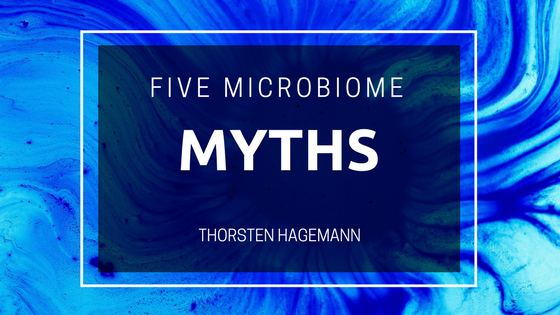Your body’s microbiome is made up of all of the bacteria in your digestive system. A current nutrition theory is that when you have more good bacteria than bad bacteria you will experience better overall health. Science has just begun to examine gut health and how it relates to chronic disease, but there are some common myths that have already been discredited.
Here, we’ll discuss a few of those myths and why they don’t hold up next to the facts.
All GMO Foods are Detrimental
Proponents of microbiome health plans tend to mention GMO foods as dangerous. The problem is that the term GMO applies to a wide swath of genetically engineered foods. Some GMO foods have only been slightly modified, while others have been drastically changed. None of the scientific studies has proven that GMO food is less healthy than the same type of food grown without any modification.
Probiotics Include all Fermented Foods
Not all fermented foods work as probiotics. A true probiotic contains enough live microorganisms to impact the number of bacteria in the intestines. Some fermented foods contain bacteria that will die as soon as they are exposed to oxygen, which means as soon as you open the container the bacteria are ineffective anyway.
Avoid All Sugar
Leaky gut syndrome occurs when the mucous layer in your intestines becomes porous, which allows substances to come into direct contact with the epithelial layer. The most common advice for avoiding leaky gut is to cut all sugars out of your diet. The trouble with that method is that many nutritious foods contain sugars that are necessary for good health. Cutting out sugar has not shown a definitive benefit, but in fact has caused nutrition problems.
Bacteria Outnumber Other Cells 10 to 1
As recently as 10 years ago scientists believed that the human body contained 10 times more bacteria than other kinds of cells. Modern researchers have discovered that the true ratio is closer to 1 bacteria cell for every 1 other type of cell. The science regarding microbiome health is changing rapidly as more research is conducted.
Fiber and Fermented Foods are Best for Gut Health
Many of the digestive problems that are blamed on the microbiome can be treated by eating more slowly, avoiding too much caffeine, or eating regularly. Fibrous or fermented foods are not always a cure-all for these problems. In fact, fiber can cause illnesses such as irritable bowel syndrome to become even worse. It’s always best to consider your entire eating schedule and make healthy adjustments for long term results.
To learn more about microbiome health, visit my blog at ThorstenHagemann.com where I discuss microbiome research at even more length.
This article originally appeared on ThorstenHagemann.com.


